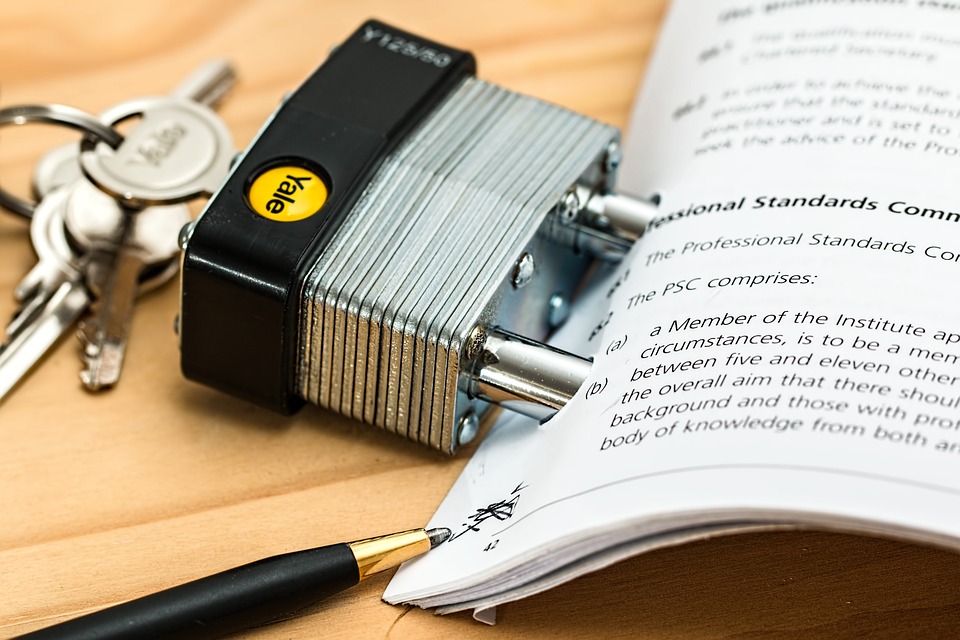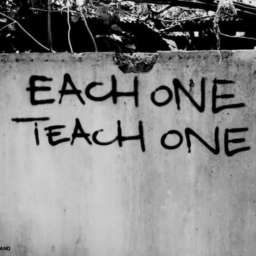Principles Of Equity: Understanding The Maxims That Govern Fairness
Equity, as a fundamental branch of law, operates on principles designed to ensure fairness and justice in legal proceedings. These principles, known as the maxims of equity, serve as guiding doctrines that courts apply when adjudicating disputes where strict application of common law may lead to unjust outcomes. By understanding these maxims, one can appreciate how equity functions to balance the rigidity of legal rules with the need for fairness in individual cases.
One of the most fundamental maxims is that “equity will not suffer a wrong to be without a remedy.” This principle underscores the very purpose of equity—to provide relief where the law fails to do so. If a legal right exists but no adequate remedy is available under common law, equity intervenes to ensure that justice is served. This maxim is particularly significant in cases involving trusts, fiduciary duties, and specific performance, where monetary compensation may not be sufficient to rectify the harm suffered.
Closely related to this is the maxim that “equity follows the law.” While equity seeks to mitigate the harshness of legal rules, it does not override established legal principles. Instead, it operates alongside the law, supplementing it where necessary. This ensures that equity does not create uncertainty by disregarding legal rights but rather enhances the legal system by addressing gaps that may lead to injustice. Courts apply this maxim to maintain consistency and predictability in legal decision-making while still allowing for flexibility in exceptional circumstances.
Another important principle is that “he who seeks equity must do equity.” This maxim emphasizes that a party seeking equitable relief must be willing to act fairly and fulfill their own obligations. For instance, if a borrower requests an equitable remedy such as an injunction to prevent foreclosure, they must demonstrate a willingness to repay the loan under fair terms. This principle ensures that equity is not used as a tool for unjust enrichment or to gain an unfair advantage over another party.
Similarly, the maxim “he who comes to equity must come with clean hands” reinforces the idea that equitable relief is only available to those who act in good faith. If a claimant has engaged in unethical or dishonest conduct related to the matter at hand, they may be denied relief, regardless of the merits of their case. This doctrine prevents individuals from exploiting the equitable jurisdiction of the courts for improper purposes and upholds the integrity of the legal system.
Furthermore, equity operates on the principle that “delay defeats equity.” This maxim, also known as the doctrine of laches, holds that a claimant who unreasonably delays in asserting their rights may be denied relief. Unlike statutory limitations in common law, which impose fixed time limits for bringing claims, laches considers whether the delay has prejudiced the opposing party. If a defendant has suffered harm due to the claimant’s inaction, the court may refuse to grant equitable relief, reinforcing the importance of diligence in seeking justice.
In addition, the maxim “equity looks to intent rather than form” highlights the flexible nature of equitable principles. Courts prioritize the substance of an agreement or transaction over its technical form, ensuring that justice is not obstructed by rigid formalities. This principle is particularly relevant in cases involving trusts and contracts, where the true intentions of the parties take precedence over strict legal formalities.
Ultimately, the maxims of equity serve as essential guidelines that shape the application of equitable principles in legal disputes. By ensuring fairness, preventing abuse, and promoting good faith, these maxims uphold the fundamental purpose of equity—to provide justice where the strict application of law may otherwise lead to unjust outcomes.
Application Of Equity Maxims In Modern Legal Systems

The maxims of equity continue to play a significant role in modern legal systems, shaping judicial decisions and ensuring fairness in the application of the law. These principles, developed by the English Court of Chancery, serve as guidelines that courts use to provide just outcomes in cases where strict legal rules may lead to unjust results. Although equity originally functioned as a separate system from common law, its doctrines have been integrated into contemporary legal frameworks, influencing various areas such as contract law, trusts, property disputes, and remedies. The application of these maxims ensures that legal decisions are guided by principles of fairness, good conscience, and justice.
One of the most fundamental maxims, “Equity will not suffer a wrong to be without a remedy,” remains highly relevant in modern legal systems. This principle ensures that individuals who have suffered harm due to another party’s actions can seek redress, even in situations where statutory law does not provide a clear remedy. Courts often rely on this maxim to grant equitable relief, such as injunctions or specific performance, particularly in cases where monetary compensation would be inadequate. For instance, in contract disputes involving unique goods or property, courts may order specific performance to compel a party to fulfill their contractual obligations rather than merely awarding damages.
Similarly, the maxim “He who seeks equity must do equity” underscores the requirement that a party seeking equitable relief must act fairly and in good faith. This principle is frequently applied in cases involving injunctions and equitable defenses. For example, in mortgage disputes, a borrower seeking relief from foreclosure may be required to demonstrate that they have made reasonable efforts to fulfill their financial obligations. Courts will not grant equitable relief to a party who has acted dishonestly or unfairly, reinforcing the idea that equity operates to achieve justice rather than to reward improper conduct.
Another important maxim, “Equity follows the law,” highlights the relationship between equity and statutory law. While equity intervenes to prevent injustice, it does not override established legal principles. Instead, it complements the law by filling gaps and addressing situations where rigid legal rules may lead to unfair outcomes. This principle is evident in trust law, where courts apply equitable doctrines to ensure that trustees act in the best interests of beneficiaries. If a trustee mismanages trust assets, courts may impose equitable remedies such as constructive trusts or fiduciary duties to protect the rights of beneficiaries.
Furthermore, the maxim “Delay defeats equity” emphasizes the importance of timely action when seeking equitable relief. Courts may refuse to grant relief if a claimant has unreasonably delayed in asserting their rights, as such delay can prejudice the opposing party. This principle is particularly relevant in cases involving laches, where a claimant’s inaction may result in the loss of equitable remedies. For example, in intellectual property disputes, a rights holder who fails to enforce their rights promptly may be barred from seeking injunctive relief against an alleged infringer.
In conclusion, the maxims of equity continue to influence modern legal systems by ensuring that justice prevails in situations where strict legal rules may lead to unfair results. By guiding judicial discretion and promoting fairness, these principles remain essential in addressing complex legal disputes and upholding the integrity of the legal system.
Key Maxims Of Equity And Their Impact On Judicial Decisions
Equity, as a fundamental branch of law, operates on a set of guiding principles known as maxims. These maxims serve as the foundation for equitable relief, ensuring that justice is administered fairly and consistently. Over time, they have played a crucial role in shaping judicial decisions, particularly in cases where the strict application of common law would result in injustice. By understanding these maxims and their impact, one can appreciate the role of equity in modern legal systems.
One of the most significant maxims of equity is that “equity will not suffer a wrong to be without a remedy.” This principle ensures that where there is a legal right, there must be a corresponding remedy. Courts of equity have historically intervened in cases where common law remedies were inadequate, providing relief such as injunctions, specific performance, and rescission. This maxim underscores the flexibility of equity in addressing injustices that might otherwise go unremedied.
Closely related to this is the maxim that “equity follows the law.” While equity seeks to provide justice, it does not operate in opposition to established legal principles. Instead, it complements the law by filling gaps and mitigating harsh outcomes. Courts apply equitable principles in a manner that aligns with legal doctrines, ensuring consistency and predictability in judicial decisions. This balance between law and equity is essential in maintaining the integrity of the legal system.
Another important maxim is that “he who seeks equity must do equity.” This principle emphasizes that a party seeking equitable relief must act fairly and in good faith. For instance, a borrower requesting relief from a harsh contractual term must be willing to fulfill their own obligations under the agreement. This maxim prevents individuals from taking advantage of equitable remedies while disregarding their own responsibilities, thereby promoting fairness in judicial outcomes.
Similarly, the maxim “he who comes to equity must come with clean hands” reinforces the idea that equitable relief is reserved for those who act honestly and fairly. If a claimant has engaged in unethical or improper conduct related to the matter at hand, the court may refuse to grant relief. This doctrine serves as a safeguard against individuals who attempt to manipulate the legal system for their own benefit while acting in bad faith.
The principle that “delay defeats equity” highlights the importance of timely action in seeking equitable relief. Courts may deny a claim if there has been an unreasonable delay in bringing the case, particularly if the delay has prejudiced the opposing party. This maxim ensures that equity is not used as a tool for indefinite litigation and encourages parties to assert their rights promptly.
Furthermore, the maxim that “equity looks to the intent rather than the form” allows courts to focus on the substance of a transaction rather than its technicalities. This principle is particularly relevant in cases involving trusts, contracts, and property disputes, where strict legal formalities might otherwise lead to unjust outcomes. By prioritizing intent over form, equity ensures that justice is served in accordance with the true nature of an agreement.
These maxims collectively shape judicial decisions by guiding courts in their application of equitable principles. They ensure that legal outcomes are not only based on rigid rules but also on considerations of fairness and justice. As equity continues to evolve, these maxims remain essential in maintaining a just and balanced legal system.












